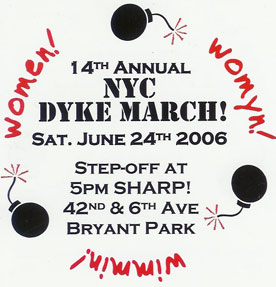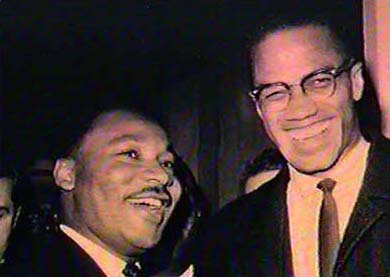3/2/07 Update: I’ve been kind of busy since posting this, so I wanted to post a quick thank you to everyone who’s written to the Post, and to everyone who’s reposted this. I didn’t expect such a great and large response, and it’s wonderful. Please keep reposting!
NOTE TO OTHER BLOGGERS: Please link to or repost this!
An important victory was recently won in the struggle for trans rights, specifically around health care. Judge Sheldon Rand of the Manhattan Family Court found, for the second time, that the City of New York is obligated to pay for the sexual reassignment surgery of Mariah Lopez, a young trans woman of color who was denied this important and necessary medical care while in the care of the NYC foster system. The City is constitutionally required to provide adequate medical coverage for all children in its care, and SRS is a medically approved procedure, one that is often necessary for trans people. In the decision, Judge Rand wrote: “Mariah L. should be treated in order that she may go on with her life and be in a body which blends with the gender with which she identifies.”*
Fortunately, Judge Rand was far more understanding and respectful than most of the media coverage, which has ranged from iffy to downright disgusting. (This article from PinkNews.co.uk is the most respectful one I’ve found thus far.)
Worst of all has been the coverage from the New York Post. Now, anyone who’s familiar with this sorry excuse for a newspaper should know that it’s usually chock full of shoddy, sensationalist, decidedly conservative-leaning rubbish that they attempt to pass off as journalism, so racism, sexism, homophobia and transphobia are all par for the course. But the two pieces that they’ve run on this story – an “article” entitled “Free To Be He-She” and the even worse editorial, “Justice Isn’t That Blind” – are really just awful and enraging. Not only are the articles thoroughly transphobic, but the editorial also falsely paints her as a “sociopath” due to her criminal record, completely ignoring her history of activism and community service and the fact that she and other trans women of color are targeted and abused by the NYPD (see Holly’s comment on this post for more.)
The New York Post needs to be sent a strong message: quit the transphobic “reporting”! Show some respect, some decency, and some attention to journalistic standards.
I ask all of you to join me in writing to the Post and giving them a piece of your mind. Below is a letter to the Post. You can copy and paste it as is, or you can add your own touches to it or write something completely new. Whichever one you choose, send it to letters@nypost.com and janon.fisher@nypost.com (the writer of the first article.) (It would be great if you also commented here, so I can get a gauge of how many emails they’re getting.)
***START OF EMAIL – START COPYING HERE***
SUBJECT: NY Post: Quit the Transphobic Reporting!
I was angered by the Post’s coverage of the recent Manhattan Family Court decision in favor of Mariah Lopez (“Free to be he-she,” February 25, and “Justice isn’t that blind,” February 27). Both articles were deeply disrespectful of Ms. Lopez’s gender identity. By referring to her as a “he-she,” a “wannabe woman,” and, in the editorial, using her old name and incorrect pronouns in direct violation of AP style guidelines, the Post has clearly demonstrated that it is more interested in playing to societal prejudice towards transgender people than in following good journalistic practices and treating trans people with the respect that they deserve.
Additionally, the articles’ sensational treatment of this story ignored the fact that the ACS is required by law to provide medically-approved treatment to children under its care, and that Ms. Lopez was indeed a child under the care of the ACS when she initially sought transgender health care, including sexual reassignment surgery. Ms. Lopez was denied access to a necessary treatment that is widely approved by the medical community. Judge Rand’s decision will hopefully ensure that no other child, trans or not, will be denied treatment in the future simply due to prejudice.
YOUR NAME HERE
YOUR CITY HERE
* Partly in anticipation of certain questions, I’d like to clarify that I don’t believe that SRS is always a necessary part of a trans person’s transition. Transition can mean all sorts of things, many of which are not medical or surgical; it’s all about what one feels is right for them. I think it’s important, actually, to get away from a medicalization of trans-ness, because that often leads to people passing judgment on who’s “really” or “fully” trans or not based on their medical history. Which is, of course, complete bullshit, given that not everyone chooses – or can afford or access – the same treatment.




